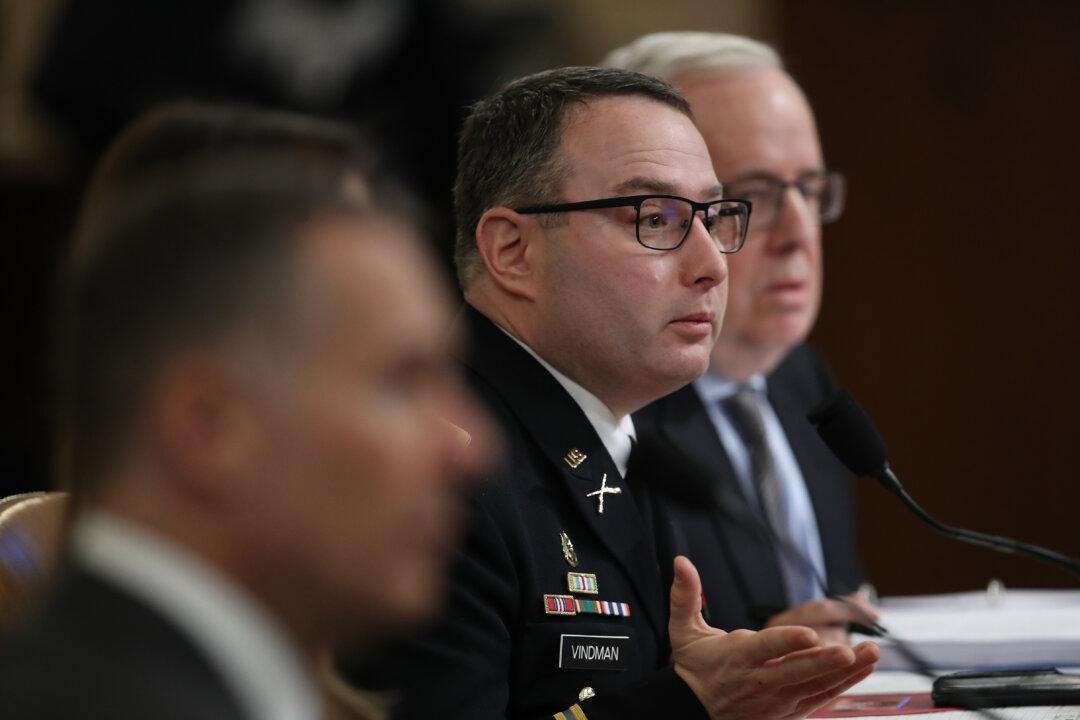National Security Council official Lt. Col. Alexander Vindman, at an impeachment hearing on Nov. 19, repeatedly refused to name the person in the intelligence community to whom he had relayed the details of a call between President Donald Trump and the leader of Ukraine.
Vindman and his attorney invoked a rule meant to shield the identity of the intelligence community whistleblower whose anonymous complaint triggered the impeachment inquiry. House Intelligence Committee Chairman Adam Schiff (D-Calif.) implemented the rule and has previously interjected to muzzle lawmakers who ask specific questions about people in the intelligence community.





